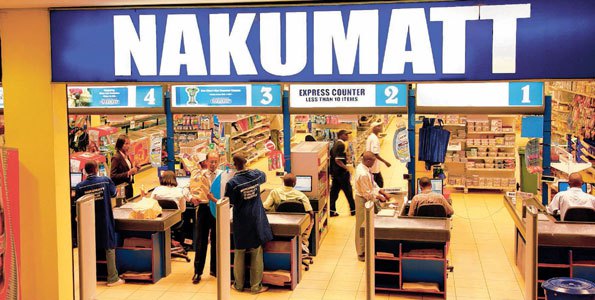Recently, an acquaintance observed an unfamiliar trend in Uganda’s supermarket business.
He noted that out of five or so supermarkets that have been operating from Biina to Port bell, only two supermarkets are now in business. The spaces of those that have died out have since been replaced by sports betting companies. He wondered what has befallen this once lucrative and trendy business.
The background prompted Business Focus to do a thorough analysis on why supermarkets are collapsing.
The trend
Back in 2000s, supermarkets were trending in Uganda. The few corporates embraced them. Many regional and international brands opened shop in the Pearl of Africa.
However, the supermarket business seems to be on the down turn in Uganda due to numerous factors. It’s a public secret that regional giant, Nakumatt supermarket has since closed shop in Uganda due to unprecedented debts owed to landlords and suppliers.
The collapse of Nakumatt followed the exit of another Kenyan based Supermarket- Uchumi that closed shop in 2015 after failing to become economically viable in Uganda.
The supermarket chain that was cross-listed on the Uganda Securities Exchange still owes debts to people who had supplied it with various items. Nakumatt and Uchumi aren’t the first to collapse.
A number of supermarkets especially the pioneers in this business in Uganda are no longer in existence-possibly pointing to how unprofitable the business has become.
It should be noted that in early 2000, Uganda started witnessing the birth of malls and supermarkets (two successful businesses in developed economies).
Within a short period, the market pioneers were breaking even as corporates and a small middle class excitedly made supermarkets their one stop shopping centre.
Like the culture is in Uganda, the ‘copy and paste’ syndrome manifested, with ‘shrewd’ investors jumping on the lucrative business. This led to the mushrooming of supermarkets not only in Kampala, but also upcountry towns.
Consequently, smaller supermarkets (mini-supermarkets) and retail shops began to take a nibble into the pioneers’ profits. The supermarket bubble has literally burst, with more supermarkets running out of steam.
This explains why a number of top supermarkets have come under attack over rotten meat and expired goods, something that points to limited market/demand.
Noteworthy, Metro Cash and Carry Supermarkets (all from South Africa) were some of pioneers, but they disappeared after the entry into the market of Shoprite and Game Store. Metro’s collapse also led to the collapse of its main outlet- Quick Save.
Locally owned Star Supermarket also went crumbling due to financial problems coupled with dwindling customer numbers as a result of increased competition.
In 2010, Tuskys made its entry into Uganda by buying out two supermarkets – Half Price and Good Price, but it has since felt the pinch of the competition.
Tuskys Bulolobi was closed a few years ago and relocated to Bwaise branch which had earlier been closed by Kampala Capital City Authority (KCCA) over selling rotten chicken, beef and expired goods.
Shoprite Naalya branch that was housed at Metroplex Mall has since been closed.
Why Supermarkets Are Collapsing
Apart from the increased competition highlighted above, there are other key factors behind the increasing failures of supermarkets in Uganda.
Charles Ocici, an analyst and Executive Director at Enterprise Uganda says many supermarkets in Uganda don’t meet the characteristics of modern supermarkets as seen in developed countries.
In other words, supermarkets in Uganda aren’t ‘super’.
He explains that for a supermarket to succeed, it must attract producers of quality products and have supplier loyalty.
“Supermarkets must pay suppliers on time. They must have the loyalty of suppliers so that they can get items on credit,” he says, adding that failure to pay suppliers on time contributed greatly to the collapse of Uchumi and Nakumatt.
Ocici adds that infrastructure is also key for supermarket business success.
“Supermarkets must have ample and convenient parking space. Cars should enter and get out without problems,” he says, adding that this is lacking in most supermarkets in Uganda. For example, during busy days, it becomes challenging to enter and get out of Game and Shoprite Lugogo branches.
He explains that unlike in Uganda, supermarkets in developed countries are established outside the city centre.
Ocici adds that record keeping of the stock and monitoring are also key for the success of a supermarket.
“If you don’t keep records of your stock, you’ll end up leaving expired goods on the shelves. Nobody wants to buy expired items; if they buy expired items, they never return,” Ocici said in an exclusive interview with Business Focus.
“If you can’t detect small thefts and manage damages and wastes, a supermarket will eat you up. Remember the profit margin in a supermarket isn’t large when you’re competing with kiosks,” he adds.
It is also worth noting that Ugandans are resorting to smaller shops in the neighborhood to buy household items.
“Supermarkets are not necessarily the cheapest in Uganda yet they have the advantage of getting bigger volumes at lower prices from suppliers,” says Ocici, adding that given the tight economy, shopping is no longer about glamour and showing off.
He adds that good suppliers are also still lacking in Uganda.
“Our SMES (Small and Medium Enterprises) are too small and inefficient to justify a presence of a value chain with a leading brand. When Uchumi Supermarket is coming to Uganda, they don’t want to bring items from Kenya or South Africa to be cost effective; they want excellent manufactured goods as well as perishables from here. If you’re going to import such items, it becomes costly and takes a lot of time to stock the supermarket,” he says, adding that international brands want to concentrate on the upper side of the value chain rather than building SMEs.
Needless to say, Uganda’s economy has a small number of people in the middle income class that can’t sustain the mushrooming supermarkets.
It is estimated that Uganda’s middle income class is just over three (3) million out of a population of over 40 million people. Generally, supermarkets are expected to attract high class customers. Uganda’s per capita income stands at less than US$ 700 going by the World Bank recent statistics.
In fact, many Ugandans go to supermarkets over the weekends for showbiz because they can hardly spend Shs100, 000. It is common in Uganda for corporates to take their children to supermarkets to buy ice cream and a few edibles!
In an earlier interview with this reporter, Prof. Augustus Nuwagaba, an economic analyst said Ugandans have a low disposable income (money left for spending purposes after paying taxes, fees and medical services) and thus supermarket business can’t flourish.
“How many Ugandans go to supermarkets? Our economy is still small with 69% [of the population] engaged in subsistence farming (producing for own consumption). They (mushrooming supermarkets) are competing for about 15% of the population,” Nuwagaba said.
He added that urban dwellers are increasingly becoming financially savvy; they are now growing vegetables, so no need to buy them from open markets or supermarkets.
He explained that supermarkets can only flourish with an increase in household income which will automatically increase purchasing power.
“The economy must grow production, employment and monetize the economy. Today Uganda is a dual economy (monetary and subsistence),” he says, adding that there is “too much oversupply of supermarkets compared to demand” yet starting a supermarket requires a lot of money (sunk costs) for rent (spacious place), items (goods) and lots of staff (guides, tellers and cleaners). Analysts say starting an average supermarket requires a minimum of Ushs200m.
Explaining further why supermarket business is no longer lucrative, Ocici says Uganda is still a largely pedestrian population where many people either walk to work or use public means.
This, he says, means that many people will either buy their basic needs from the nearest retail shop or on the roadside.
“When it comes to perishables (meat, vegetables, bread, milk etc), there’s variety outside supermarkets which is also fresh. In a supermarket, beef can be in the fridge for more than a week,” he says, adding that even those with vehicles have considerations to make before going to a supermarket. He says a supermarket could have a seemingly enough parking space only to be congested during peak hours/periods. He adds that supermarkets also employ many workers who are in most cases idle for they (supermarkets) tend to work during peak hours especially in developing countries like Uganda. “While in the western world a supermarket is everyday shop, many Ugandans don’t buy domestic items from supermarkets,” he says.







There are two distinct but interconnected realities that must be checked and not taken for granted when it comes to the collapse of super markets in Uganda.The first one is Uganda a negotiable society that is why every time you board ataxi one must ask how much sebo even if you are boarding the same taxi because the level of unpredictability is very high ,then when it comes to middle class, these ones are wornout with high interest rates by our commercial banks and unchecked credit institutions , so a bigger percentage of the middle class are down town negotiating in open markets . The only categories of super market clients are the foreigners excluding the indians who have been in Uganda for more than 3years.my suggestion could be that some should open a negotiable super market just to satisfy the the typical social fabrics of uganda.if this is not taken seriously many super markets will come to Uganda walking but will return limping
Indeed your very right, a Discount Shop store Where products are average costed and prices_ Negotiable Supermarket
thanks for the knowledge
This is the best analysis.Supermarkets in Uganda are too many for a limited consumers market.The Ugandan purchasing power is very low.
Supermarkets shall work when we reach the middle income status